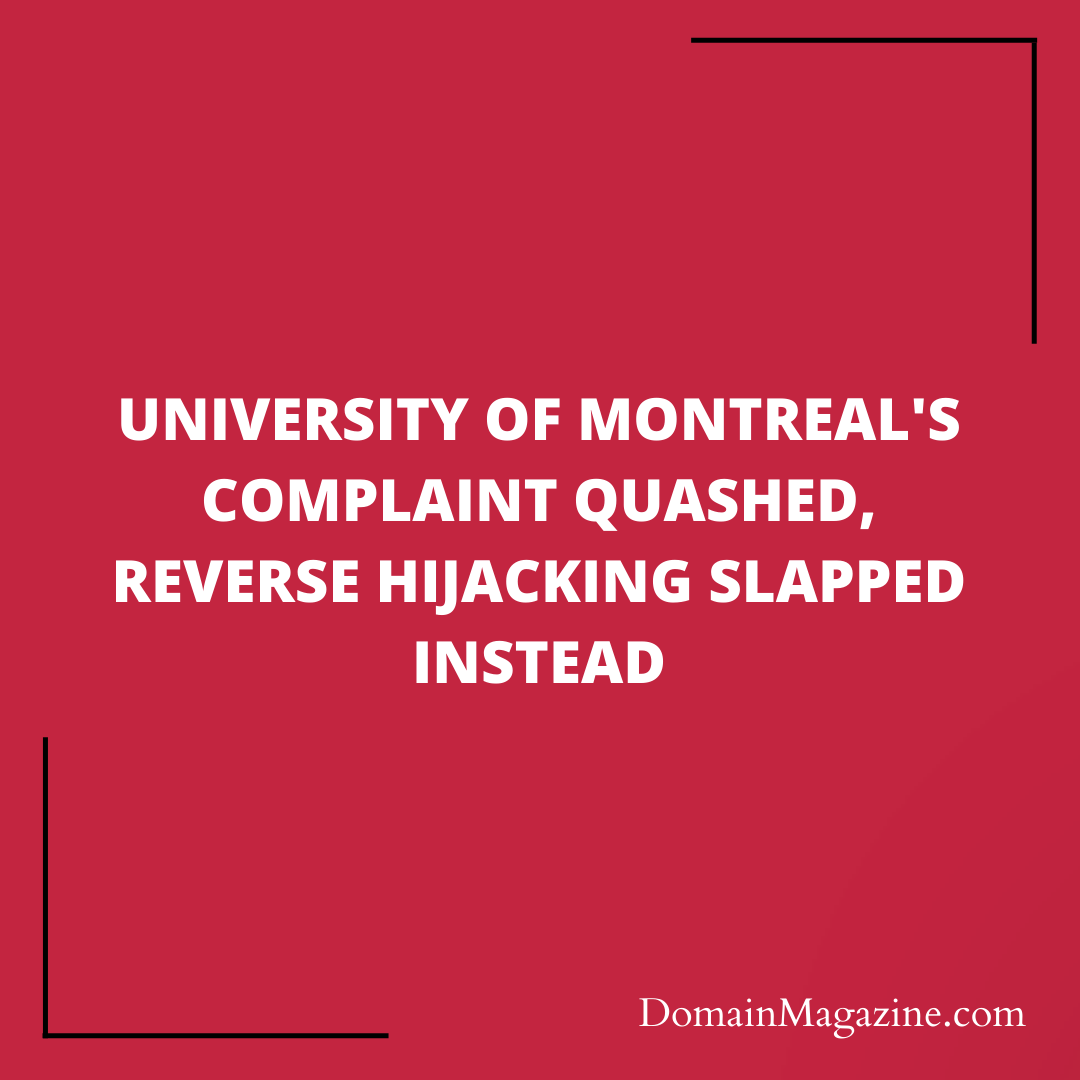In a recent and groundbreaking decision, a panel led by Hon. Neil Brown, KC, has put a spotlight on the world of online domain disputes. This case revolves around a dispute between the University of Montreal‘s Faculty of Medicine and a domain name holder over the domain “extenso.com.” The proceedings shed light on issues of domain ownership, trademark rights, and reverse domain name hijacking.
Background:

In 2001, the Complainant’s Faculty of Medicine established the “Centre de reference sur la nutrition humaine Extenso” (referred to as “Extenso”) as part of its Department of Nutrition. The disputed domain name, “extenso.com,” was registered in 2001 but later became inactive, eventually lapsing in November 2022. Subsequently, the Respondent acquired the domain and used it to promote nutrition advice and weight-reduction products. However, the Complainant asserted that it had not approved of these products.
The Respondent argued that the Complainant’s Canadian trademark for “EXTENSO” was not renewed and had been removed from the registry in 2019. Furthermore, the trademark was not registered in the name of the Complainant, raising questions about its validity. The Complainant failed to provide evidence of common law trademark rights in “EXTENSO” or demonstrate its secondary meaning.
Key Facts:
- The Complainant established the “Extenso” nutrition center in 2001.
- The disputed domain “extenso.com” was registered in 2001 and later lapsed in 2022.
- The Respondent acquired the domain and used it for nutrition-related products.
- The Complainant’s Canadian trademark for “EXTENSO” was not renewed and was removed from the registry in 2019.
- The Complainant failed to prove common law trademark rights or secondary meaning in “EXTENSO.”
Panel’s Decision:
- The Complainant’s Canadian trademark for “EXTENSO” was found to be invalid as it had been canceled and removed from the registry.
- The trademark was not registered in the name of the Complainant, the University of Montreal.
- The Complainant failed to demonstrate common law trademark rights or secondary meaning in “EXTENSO.”
- The Complainant provided insufficient evidence to support its case, leaving key arguments unsubstantiated.
- The Panel concluded that the Complainant’s case lacked evidence to prove that the Respondent lacked legitimate interest or had registered and used the domain name in bad faith. The Complainant failed to establish the grounds for a successful domain dispute.
Conclusion:
In a landmark decision, the panel ruled against the Complainant, emphasizing the importance of providing substantial evidence in domain disputes. The case highlights the significance of valid trademark ownership and the need for complainants to meet their burden of proof. Furthermore, the Panel declared this case as Reverse Domain Name Hijacking (RDNH), indicating that the Complaint was brought in bad faith and constituted an abuse of the administrative proceeding. This case serves as a valuable lesson for all parties involved in domain disputes, emphasizing the necessity of transparency and evidence to support claims.


Join the Discussion